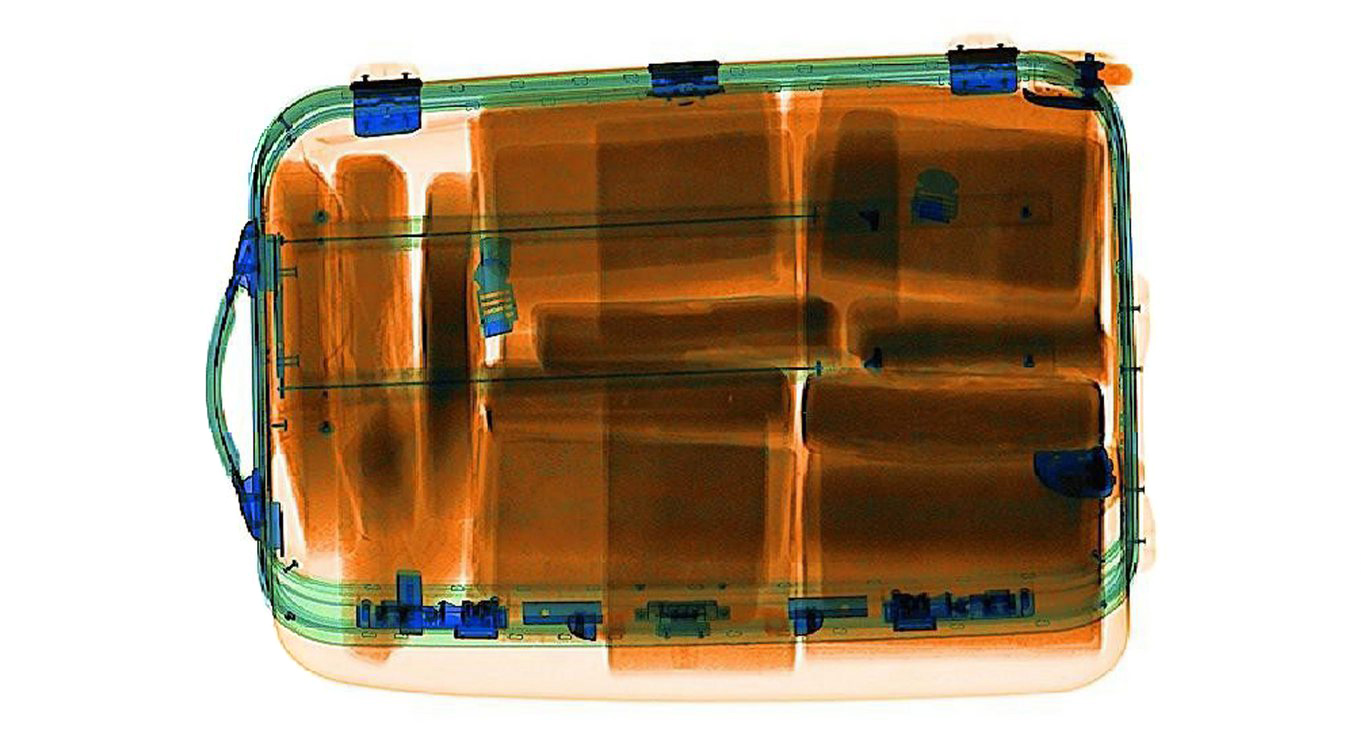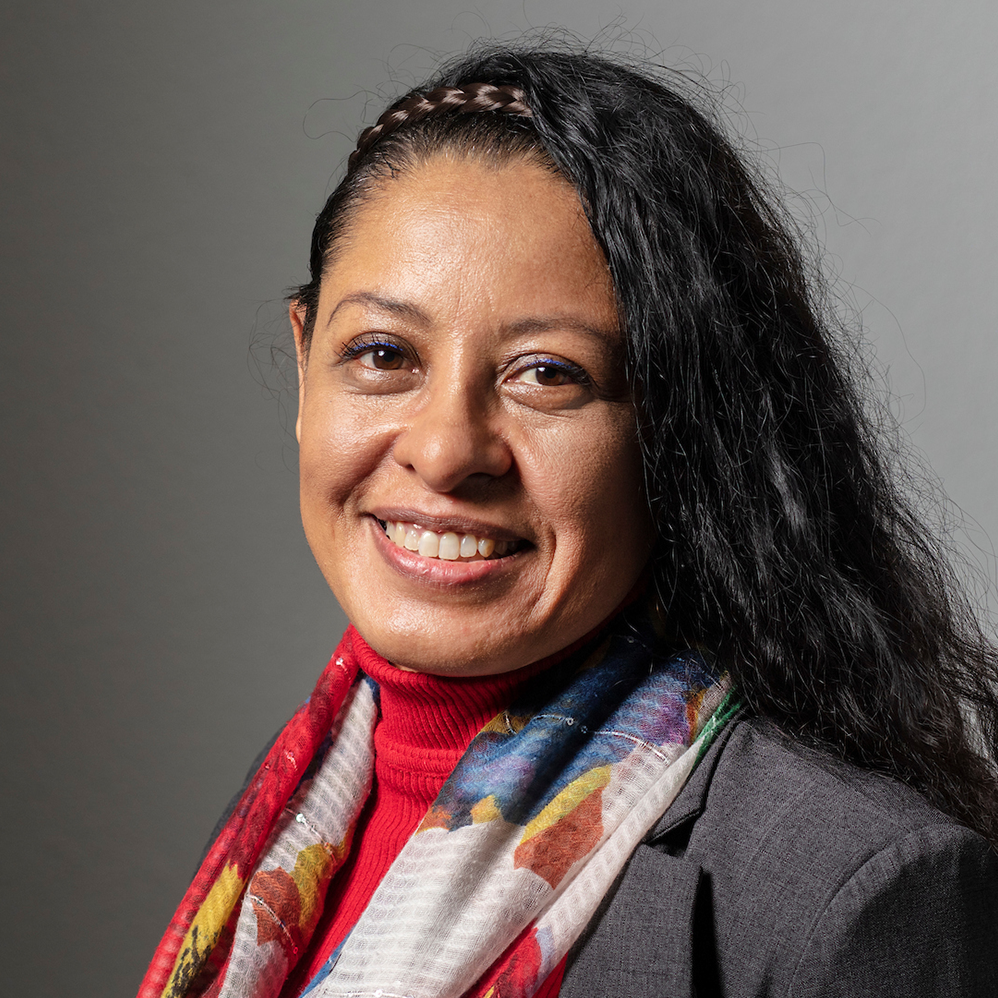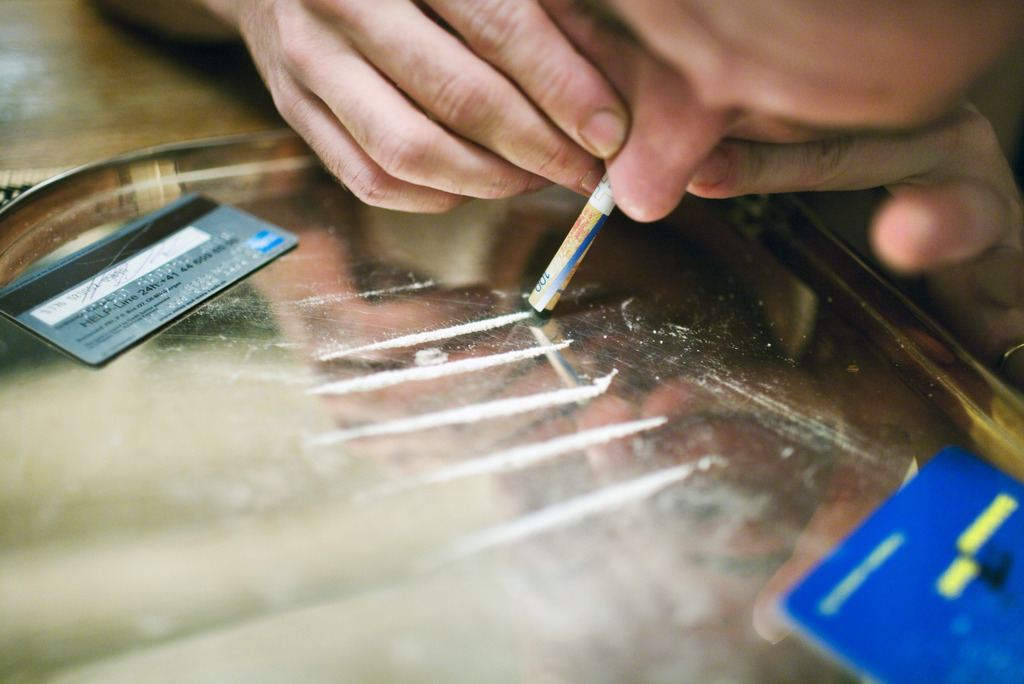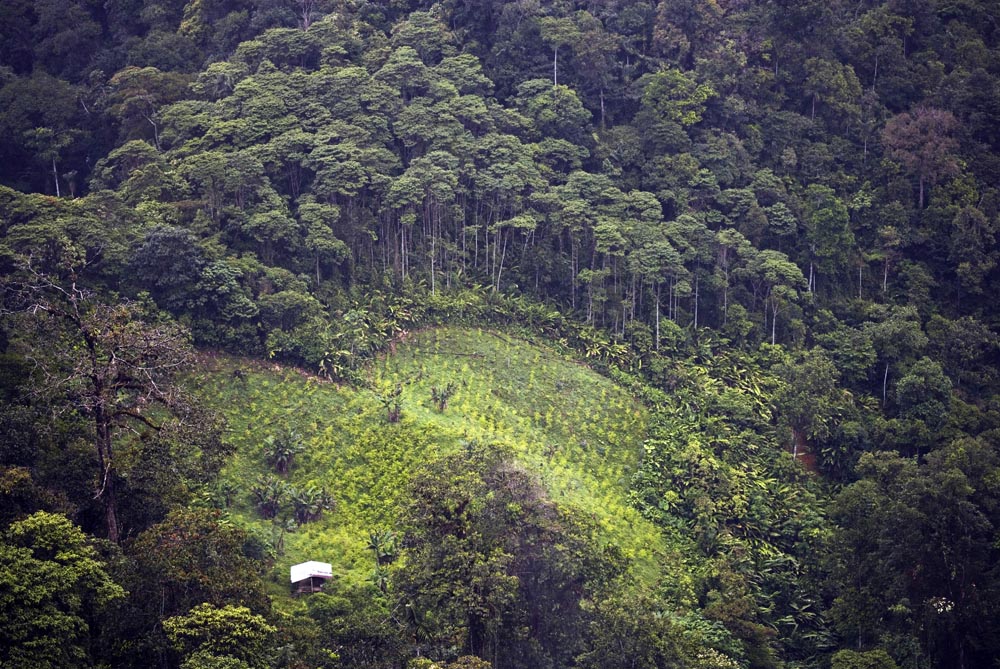My cocaine flight straight to a Swiss prison

Sara* wandered around Zurich airport transit area for two hours looking for the restaurant to hand over her goods. “I got lost. That’s when I knew: 'Now you’re trapped’.” Locked up in Hindelbank prison, the young Dominican tells her story.
“I used to live in the Cristo Rey district of Santo Domingo, a crime-ridden part of the city,” said Sara, 22, who has been in Switzerland’s only women’s prison since 2010.
“I married a 67-year-old German when I was 18, but we split up straight away. My husband got annoyed whenever I asked him for money for my family: my sick mother, my 16-year-old pregnant sister who is in prison with her husband, my grandfather and my two-year-old son. I wanted to show him that I could get by on my own, whatever I did.”
That is how the young woman with only four years’ formal schooling ended up as a link in the South American cocaine trafficking chain.
The Dominican Republic is not a drug-producing country but is an important transit point on the route to Europe – the destination of ten per cent of all cocaine produced worldwide.
Sara’s introduction to trafficking took place in a restaurant in the city of Puerto Plata.
“There were four well-dressed men with expensive cars. They handed me an airline ticket and took photos of me. They said they would give me the money, €7,000 (SFr8,407), in Europe. Everything seemed so easy,” she said.
Sara, whose mother was a prostitute and whose drug-addict father was often absent, decided to take the plunge, especially as her new acquaintances had treated her so well.
Just before boarding the plane, a woman handed her a suitcase in the departure lounge, then vanished.
On your own
“My ticket was for Switzerland with an onward journey to France. In Zurich, I was supposed to go to a restaurant in the transit area, but I got lost. I walked around in circles, always returning to the immigration control area. I had two mobile phones. One had rung before departure: ‘Did they hand you the suitcase?’ they asked. I said yes. In Zurich the phone only rang when there were two police officers next to me. ‘Make sure they don’t check you’, they said.
That Spring afternoon in 2010 the police at Switzerland’s main airport made a major catch: 12 kg of cocaine out of the 108 kg total seized that year.
“The first night I couldn’t stop screaming, crying and banging on my cell door. A policeman said to me in Spanish: ‘You’d better be quiet and thank God that you were arrested in Switzerland and not in a neighbouring country, where the sentences are tougher. If you admit everything, you’ll be sent to prison where you can call your family, work and send money back home’. When I heard that, I fell quiet,” she said.
Punishment cell
Six days later Sara was transferred to another prison in Zurich to await her sentence. There she met other female detainees: “They told me: ‘You were so stupid, 12 kg for €7,000. That’s what they pay for one kilo. You’ve lost half a million dollars. But don’t worry, you were exploited. You’ll get two to three years in prison.’”
She was given a six-year sentence but the court-appointed attorney got it reduced to four-and-a-half years.
On June 21, 2010, Sara entered Hindelbank. “The first word I learned in German was whore… I bad-mouthed everyone. The [other prisoners] said I was stupid and called me a mule. They told me they did their own deals and pocketed all the profits. I fought with them and twice ended up in the punishment cell.“
She was used to violence. From the age of 13 she had fleeting unsuitable relationships, and when she was 15 she lived with a man, who used to hit her.
“I used to defend myself, but one day I let him mistreat me until he got tired, and I vowed that would be the last time.” And it was. Sara returned to her mother with her son. “I tried everything possible for him not to be born, but it didn’t work. In my country, abortion is a punishable offence.”
Learning to work
After two years and four months in prison, Sara says she is a changed woman.
“Here you have the opportunity to work and get an education. I started working in the cardboard box and cards section, which we prepared for a company. I also worked in the laundry and as a cleaner. The guards give us points if we are motivated.”
And points mean a higher salary. But it is not easy to work and study in an environment full of resentment and jealousy.
“They said people born as backward as me would never learn anything. ‘Why do you bother learning German’, they ask me and treated me like an outcast,” Sara said.
Qualifications
Next October Sara will take the exam for the Goethe Institute B2 German certificate. After 20 months of German classes she has made obvious progress. In addition to her daily work she accepts extra tasks. “This allows me to earn about SFr300 to SFr400 a month and to send money back home, sometimes SFr200 or SFr300.”
The Dominican has found her ideal job: in the market garden, where she earned 29 out of 30 points. “I have learned so much. We grow a lot of vegetables, which we can sell outside.”
She felt she had learned a great deal in prison: “First of all, I learned to be strong and to not let anything get me down. Secondly, I think before taking a decision. And third, you have to get qualifications. I want to go back to school and get a job. It is great to have a decent job like here in prison. I never had that on the outside, nor any kind of respect or safety.”
And what would you say to somebody who was about to take the same step you took two years ago?
“That they shouldn‘t do it. What hurt me most was to see the damage drugs can cause. That’s what they explained to me here and I was able to see what happened to drug-addicted prisoners. It’s not easy in prison; there are consequences. Freedom has no price. It would be perfect to have all the amenities I have here and be free.”
* Name known to writer
Hindelbank, situated 19 km from Bern, is the only women’s prison in Switzerland.
A total of 104 prisoners above the age of 18 serve sentences, which range from a few months to life.
Just over half are Swiss. The rest come from 25 different countries. Thirty are serving sentences for murder or grievous bodily harm. In addition, 38 were charged with fraud, theft and other offences and 36 for violating Swiss drugs law. In all, nine are serving sentences for drug trafficking to Switzerland: three from Latin America and six from Europe.
A total of 5.6% of all detainees in Switzerland are women.
Between January and June 2012, Zurich cantonal police, in cooperation with the customs authorities, confiscated 36 kg of cocaine (as well as 17.5 kg of heroin and 70 kg of khat) at Zurich airport. In all, 40 people, 30 men and 10 women, were arrested. Of these, were smuggling cocaine in capsules or condoms.
Others transported it in the false bottom of a suitcase, inside a computer or a book, attached to the body or inside the vagina.
Every year, more than 100 kg of cocaine are seized at Zurich and Geneva airports.
An estimated 10-20% of illegal drugs smuggled by flight passengers are confiscated.
Over recent years, European countries have intensified cooperation to improve warnings about suspected drug traffickers using air transport.
Direct contacts are also made with Latin America. The Geneva police, for example, has taken part in uncovering and eradicating coca plantations in Bolivia.
For flight connections towards Switzerland, Sao Paulo in Brazil is a frequent stopover for drug traffickers. Most perpetrators, however, originate from a Latin American country or via connecting flights in the Caribbean, Africa or Europe (London, Madrid, etc.).
In Switzerland, trade in cocaine is largely in the hands of Africans and Dominicans.
(Translated by Chantal Britt)

In compliance with the JTI standards
More: SWI swissinfo.ch certified by the Journalism Trust Initiative



You can find an overview of ongoing debates with our journalists here. Please join us!
If you want to start a conversation about a topic raised in this article or want to report factual errors, email us at english@swissinfo.ch.